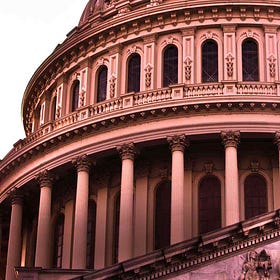Tuesday's Assorted Links
Water usage, airfare, Uno, recessions, and credit card debt

Hi y’all! Here are five stories from this week that contained some neat applications of economic principles or are related to teaching:
Globally, forecasters estimate that will consume 450 million gallons of water each day by 2030, up from around 205 million gallons back in 2016 [The Hustle | Monday Morning Economist]
US round-trip airfares are down 11% compared to 2022 and 2019 as carriers try to lure Americans into domestic trips [Bloomberg]
Mattel is looking to hire a “chief Uno player” for its new Quatro edition — the job offers 4-hour shifts, 4 days a week, for 4 weeks, and the salary is $4,444.44 [CNN Business]
Americans were expecting a recession that never arrived [Chartr]
A new report finds that Americans charged more than ever to their credit cards last quarter, bringing credit card debt to over $1 trillion for the first time. [Federal Reserve Bank of New York]
I want to wish a warm welcome to the 29 new subscribers who have joined us over the past week. If you’re forwarding emails to friends or posting links on social media, be sure you’re using the blue buttons so that Substack can keep track of your referrals and I can send you goodies!
Credit ratings are like a financial GPS. These signals assess how likely countries or companies are to repay debts and impact borrowing costs, interest rates, and investor confidence. But what happens when one of the most trusted assets, like the U.S., becomes slightly less trustworthy?
Explore the recent U.S. credit rating downgrade from AAA to AA+ and what it means for investment decisions:
What Does It Mean When AA+ Isn’t the Best Grade You Can Earn?
Credit ratings serve as signals, guiding investors through the choppy seas of borrowing and lending. They're like a financial GPS, telling us how likely a country or a company is to pay back its debts. These ratings can impact borrowing costs, interest rates, and even investor confidence. But what happens when one of the most trusted assets in the world…





